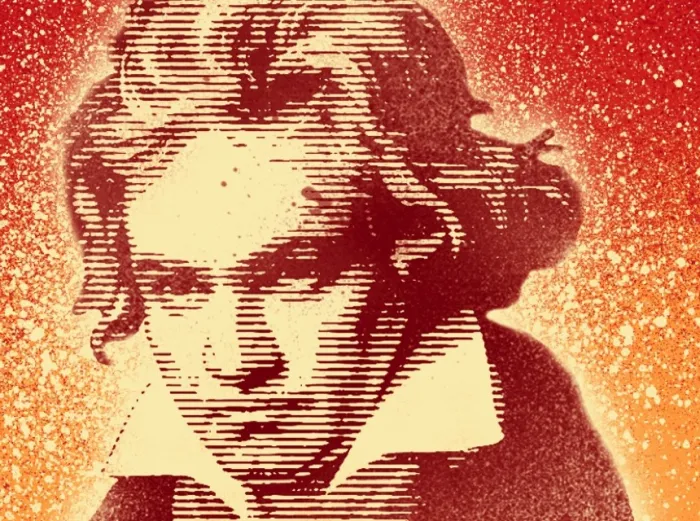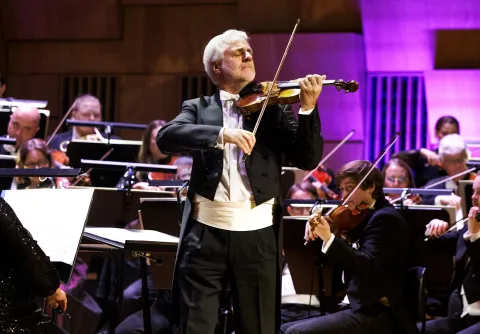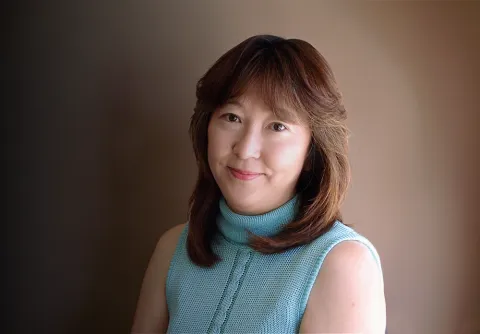Beethoven Festival with Malmö Symphony Orchestra

The years 1799–1824 are one of the most revolutionary periods in music history.
That was when Beethoven wrote his nine symphonies, where he repeatedly revolutionized the art of music with his bold innovation and strong melodies. When the last chord of the Ninth and Last Symphony sounded for the first time in front of the breathless audience at the Theater am Kärntnertor in Vienna on May 7, 1824, many composers and critics believed that the genre was perfect and exhausted. Fortunately, his followers eventually found new ways.
During an intensive two-week period, the Malmö Symphony Orchestra lets its audience experience this very special quarter century by performing the nine symphonies during four concerts.
- It is a big task, says MSO's chief conductor Robert Trevino. I know that the audience has heard all the symphonies in recent years, but to hear them in such a short period of time is something else. Beethoven is a monumental composer, so an orchestra that will perform all the symphonies in this way must be in very good shape - physically, mentally and not least artistically. Each symphony is played only once, so you have to come to all four concerts to hear the composer's development.
Robert Trevino has chosen the title "Transitions and revolutions" for the festival, which can roughly be translated as "Transitions and revolutions". Starting from a pioneering composer, who went through several phases both musically and in the world around him, Trevino wants to encourage a conversation about the opportunities that exist in the social and cultural upheavals that Malmö is currently undergoing. The title also alludes to the Malmö Symphony Orchestra's ongoing work to define its role in today's and tomorrow's Malmö. With the intensive program, Trevino wants to make Malmö Live the city's cultural and social meeting place for a two-week period.
Ludwig van Beethoven was born into a family of musicians in Bonn in 1770. He began composing at the age of twelve and made a name for himself as a virtuoso pianist in his twenties. He settled in Vienna and occasionally studied under the composer Haydn. The great breakthrough came with the first symphonies, which he wrote at the age of thirty. In the years to come, he came to redefine the symphony form fundamentally - from light-hearted and entertaining salon music to something much bigger. He extended it and filled it with seriousness, complexity and innovation. He wrote nine symphonies, while his predecessor Mozart wrote 41 and Haydn 108. That says something about how different they viewed the art form.
- He also changed the very reason for writing music, says Robert Trevino. Beethoven's first symphony is a purely symphonic work, while the second gets its impulse from what is usually called the Heiligenstadt testament, where he formulates his musical manifesto.
The will was a text that Beethoven addressed to his brothers Carl and Johann in October 1802, when he understood that his hearing loss would eventually lead to deafness. He wrote, among other things: “I should have ended my life, the only thing that held me back was art. It seemed impossible to leave the world before I had created everything I felt called to create. ”
So Beethoven endured. And became deaf. And created anyway.
Several of the symphonies became manifest in themselves. The Third Symphony helped lay the foundations for the Romantic era. With the fifth he created one of the most famous melodies in world history, the sixth was an important cog in the development of program music and in the ninth he introduced singing in the symphonic form. And what a song then…
But it was not only on the musical level that he wrote about music history, he also redefined the role of the composer and the audience's relationship to the art form. The composers before him had in many ways been court musicians who worked for the aristocracy.
- Beethoven was always a composer of the people, says Robert Trevino. The aristocracy certainly paid him, but he wrote his music for the people and humanity.



